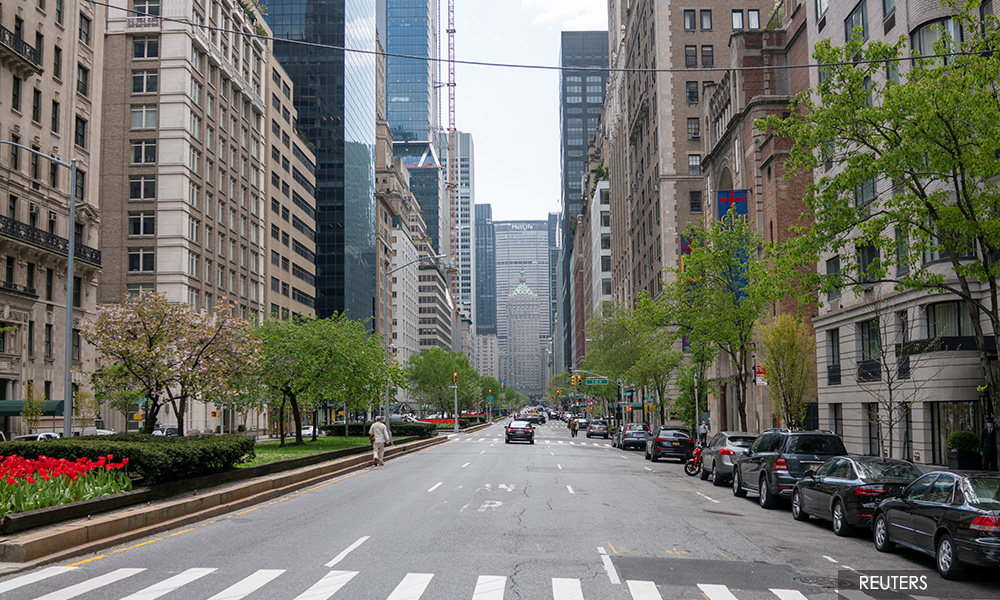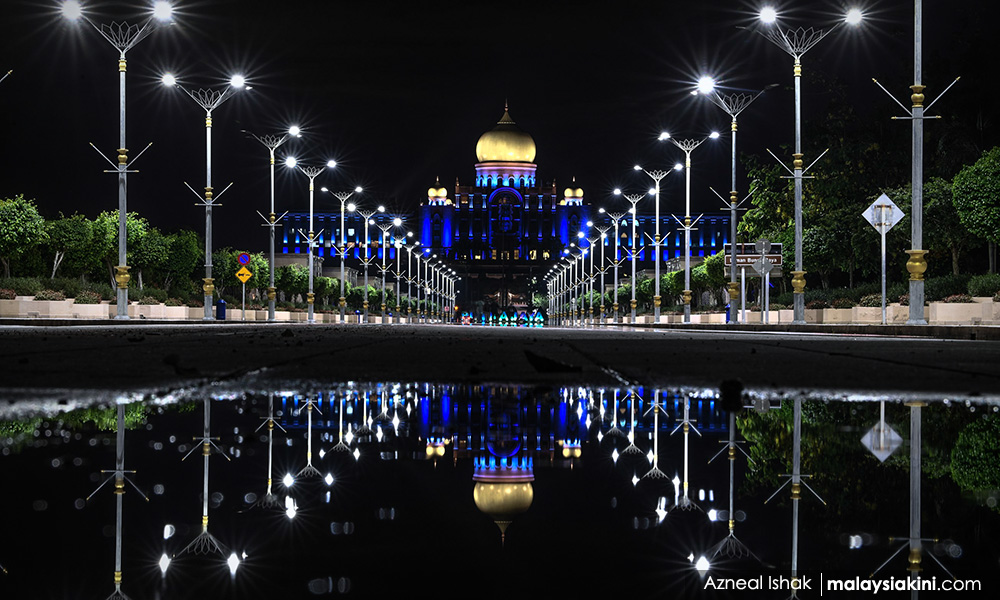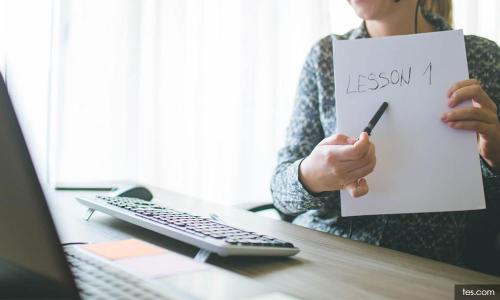COMMENT | Future of education: Notes from an Oxford-Cambridge webinar
COMMENT | Future of education - a better topic than the dromological drama of Malaycoronapolitics!
On May 13th `2020, I was invited to a webinar talk by the Oxford Cambridge Society of Malaysia.
An honour indeed to share my views on one of the most passionate topics that has given me the motivation to write about in this column, for 13 years. I am sharing the notes I prepared the day before.
Seven Cs of change
I foresee what I call seven Cs of change, in the future of Education, post-Covid-19. We must be aware and be prepared. What are they? First the global picture: Community, Technology, Health and Science, Government, Elections, Global Economy, and Lifestyle – these are the spheres of change. Next, in education, the seven areas of change are: cultural, cyber-education, curriculum design, career-connections, cocktail of thinking skills, cities and communities and our consciousness. The seven Cs we need to anticipate.
The Covid-19 pandemic is presenting us both an opportunity and a challenge for education to break free from the shackle of the norm: industrialism. It offers the enterprise of teaching and learning with the familiar and the strange, and the irrational structure of opposites threatening humanism.
The Chinese philosopher Lao Tzu once said, the only permanent thing is change. Covid-19 is the change agent to an otherwise permanency of class structure, we can conjecture. Still, borrowing the definition from the Latin, educare, meaning "to draw out" (human potential), making us think of what the Enlightenment thinker Jean-Jacques Rousseau said about his book Emile, Or on Education which I say a must-read for teachers. A Teacher’s Day assignment, under the movement order or lockdown, this could be.
Whether developed in a lab as bioweapon or natural in its DNA, Covid-19 is a friend to Mother Nature. The principle of causality is at play here. Or karma. Or of the Butterfly Effect of Things. Following Jean-Jacques Rousseau, in Emile, education must be romantic enough to bring us back to "Nature."
We need not yearn for the old normal, if following what the imprisoned Italian Marxist thinker Antonio Gramsci would say: it is a collapsing world of monstrosities. The new normal is a world of radically deglobalised world. Of the collapse of the commanding heights of the "free world." This old world is only at the beginning of crumble. External attacks on the global order and internal explosions of nation-states.
Humanity in calamity?
Covid-19 is a butterfly effect of a Thanatos of a world built on structural violence: class and environmental destruction. Human calamity only the beginning. Daily there are thousands of deaths. Massive unemployment on a scale unseen before in recent history worse than The Great Depression is evolving. Humanity is under lockdown and even the gradual opening of society spells danger and more deaths. Next, I foresee death of the cities, especially the ones in the coastal areas. Few decades after this Covid-19, coastal cities like New York, Singapore, Jakarta, San Francisco, Tokyo will be under water.

In the US, the jobs created after the Great Recession have all been disappearing. The economy is being destroyed in less than six months. In the US today, a three trillion-dollar lifesaver package has just been passed, a second one to stop the haemorrhaging of the economy and to perhaps stop a social uprising from happening as a consequence of the unemployed, too, armed with weapons. No this is not a Hollywood movie. This is American realism of today.
From death of distance in the romance of the "global village," we are seeing the death of physical distance. The six-feet rule. What has future of education got to do with economy post-Covid-19? When education is a conveyer belt of social reproduction? I see the Brahma-Shiva-Vishnu tripartite of Fate and Determinism at play in Covid-19. Are we in that final "yuga"? Perhaps too late for humanity to be saved. We have destroyed everything Mother Nature cherished. Destruction has begun.
While still alive, locked in isolation, we ought to still have hope. A glimmer. That our world may still function: remotely. The new normal will be about abnormalities. Pain and pleasure. Until AI completely takes over, machines controlled by the few. Already, robots are being deployed to monitor social distancing and AI taking over to dominate the modus operandi of health monitoring in a war against the virus.
On Teacher’s Day, let us talk about the most contested terrain in society: of education and its future. Where do we go from here after a sudden collapse of the educational world order? We need a roadmap.
But isn't the destination here? An apocalypse?
Futurescapes
Spheres or “scapes” of change we ought to visualize for us to get to the future. To go to a new normal. If we all are not decimated by the virus within the next few years.
I see these changes coming, at least in the area of community development. Or rather in its breakdown, post-Covid-19:
- The concepts of the “communal” and the “individual”, so often-discussed by anthropologists and sociologists are changing, as we enter a new world post-Covid-19. To be close and personal is dangerous.
- We may see a new sense of patriotism emerging. It could be better or worse than Brexit or "Make America Great Again". Or Ketuanan Melayu. How is this manifesting?
- Will there be a decline in polarisation? Will the class structure crumble? Will the poor attack and eat the rich? Will this be our ultimate “Hunger Games”?
- Religious knowledge could not explain Covid-19, nor offer solutions to the pandemic. Return of trust and faith in science
- Will "individualism ala Americanism" be withering? Waning off? Washed away? Will we care for one another better?
- The act and art of worshipping have also changed. It is now a remote activity. Dangerous it is to congregate as this will invite more deaths as we celebrate life in the houses of worship. Literally, metaphorically our worship has gone remote. Bad for capitalists of religion. Will this phenomenon signify the death of institutionalised religion?
- The words "socialising" and "socialism" are conjuring new connotations. In a world post-Covid-19. The state is stronger than the invisible hands that have been feeding it throughout these centuries. The state is a planner of economics, managing national households, dishing out handouts, stimulus package after stimulus package, printing money. Until it too collapses.

- But how do we "educate" for a "remote and distant future". What will we be preparing our children for? We have been plunged into a world of total uncertainty?
- How do we adapt to a time when we play this cosmic hide-and-seek with a virus attacking our “Matrix”? Will our lives be about meeting basic needs and dodging death daily?
- How will children play together - six feet apart? We live: Six feet up, sideways, and next, under, 6-6-6. Our existence is now about this personal space which has become a matter of life and death.
- In the Covid-19 World, will the expression of Love be primarily cerebral and virtual, removing the excesses of physical closeness?
- How will the new normal reduce crimes committed via private-space intrusion? Of mugging? Daylight street robbery? Of molesting? Of pick-pocketing?
Questions
There are so many questions on the future of education as it relates to changes in the community.
Where are we going?
What is your government doing to prepare for this post-war era?
Or is yours still trapped in the war of the looters and robber barons of Malaycoronapolitics?
AZLY RAHMAN is an academician, international columnist and author of seven books available here. He holds a doctorate in international education development and Master’s degrees in six areas: education, international affairs, peace studies, communication, fiction and non-fiction writing. He is a member of the Kappa Delta Pi International Honor Society in Education. Twitter @azlyrahman. More writings here.
The views expressed here are those of the author/contributor and do not necessarily represent the views of Malaysiakini.
RM12.50 / month
- Unlimited access to award-winning journalism
- Comment and share your opinions on all our articles
- Gift interesting stories to your friends
- Tax deductable

